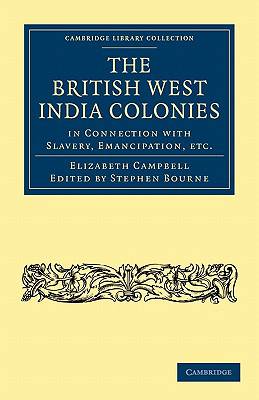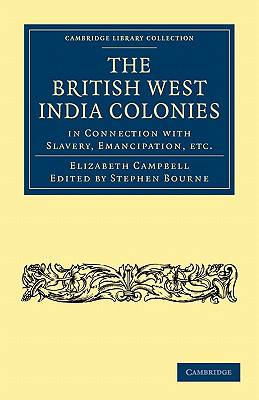
- Afhalen na 1 uur in een winkel met voorraad
- Gratis thuislevering in België vanaf € 30
- Ruim aanbod met 7 miljoen producten
- Afhalen na 1 uur in een winkel met voorraad
- Gratis thuislevering in België vanaf € 30
- Ruim aanbod met 7 miljoen producten
Zoeken
The British West India Colonies in Connection with Slavery, Emancipation, Etc.
Elizabeth Campbell
€ 53,45
+ 106 punten
Omschrijving
Stephen Bourne (1791-1868) was a British civil servant who served as a magistrate in Jamaica between 1834 and 1841 and as Registrar of British Guiana between 1841 and 1848. His daughter Elizabeth Campbell left England with her father in 1834, and lived in the West Indies for thirteen years. This volume contains two essays and a published letter, the essays written by Elizabeth Campbell and the letter by Stephen Bourne, discussing the effects and limits of the Emancipation Act on the economy and society of the British West Indies. The two essays by Campbell discuss the limited social effects of the Emancipation Act, with the letter by Bourne suggesting ways to improve the economic prosperity of the West Indies. The ideology of later abolitionists, who endeavoured to improve social and economic conditions in plantations to demonstrate the possibility of prosperity without slavery, is fully explored in this volume.
Specificaties
Betrokkenen
- Auteur(s):
- Uitgeverij:
Inhoud
- Aantal bladzijden:
- 150
- Taal:
- Engels
- Reeks:
Eigenschappen
- Productcode (EAN):
- 9781108020701
- Verschijningsdatum:
- 30/09/2010
- Uitvoering:
- Paperback
- Formaat:
- Trade paperback (VS)
- Afmetingen:
- 140 mm x 216 mm
- Gewicht:
- 199 g

Alleen bij Standaard Boekhandel
+ 106 punten op je klantenkaart van Standaard Boekhandel
Beoordelingen
We publiceren alleen reviews die voldoen aan de voorwaarden voor reviews. Bekijk onze voorwaarden voor reviews.











